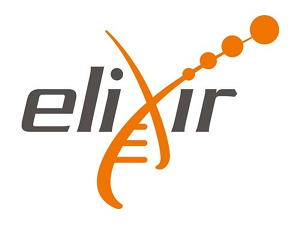Gallantries & ELIXIR-GOBLET Train the Trainers
This course introduces trainers to learning principles, training techniques, lesson, session, course, and material design as well as assessment and feedback. This course is has been developed for by trainers in the bioinformatics but is suitable for all trainers and educators in higher education.

Gallantries worked together with the ELIXIR-GOBLET Train the Trainer community to develop a Train the Trainer curriculum, with a focus on Galaxy, and available on the Galaxy Training Network
To deliver this curriculum, we organize a 4 half-day online and free workshop on June 12-15th, 2023 to introduce trainers to:
- learning principles,
- training techniques,
- lesson, session, course, and material design
- assessment and feedback.
General information
- Date: June 12-15th, 2023
- Format: Online via Zoom
- Location: Zoom (details shared later to participants)
- Time: 9am-12pm CEST (see in your timezone)
- Cost: Free
- Contact: berenice.batut@gmail.com if you have questions, or special requirements
- Support: Zoom, Chat, and Shared Google document
Pedagogical information
Target Audience: Whoever is interested in becoming a trainer/instructor, or improving your training skills.
If you have questions like the following ones, this course may be very helpful to you.
- How learning works?
- How do I use learning principles and theories to improve my teaching/training?
- How do I make my teaching/training more engaging and effective?
- How should I adjust my teaching/training to different types of learners?
- How do I ensure learning progress?
- How can I assess whether my students are actually understanding my lessons? Are they actually learning?
- What is the best balance between theory and practice?
- How can I best assess whether learning is occurring and/or has occurred?
- What works in a classroom and what doesn't?
Learning Objectives:
- To get acquainted with Learning principles and how they apply to training
- To be able to select and use training techniques that can help enhance learner engagement and participation
- To learn how to use assessment and feedback in training
- To learn about session, course, and materials design
Learning Outcome: By the end of this course, learners will be able to:
- Name learning principles that a good teacher/instructor should have in mind
- Describe at least three training techniques, drawing on learning principles
- Design a training session and a course
- Develop assessment questionnaires
- Enumerate types of materials needed for each part of a training session or course
Preliminary schedule
| Day | Start | End | Duration | Session | Instructors |
|---|---|---|---|---|---|
| June 12th | 9:00am | 9:30am | 30min | Welcome | Fotis Psomopoulos, Bérénice Batut |
| June 12th | 9:30am | 12:00pm | 2h30 | Learning principles | Cristóbal Gallardo |
| June 13th | 9:00am | 9:30am | 30min | Welcome | Fotis Psomopoulos, Bérénice Batut |
| June 13th | 9:30am | 12:00pm | 2h30 | Design and plan session, course, materials | Bérénice Batut |
| June 14th | 9:00am | 9:30am | 30min | Welcome | Fotis Psomopoulos, Bérénice Batut |
| June 14th | 9:30am | 11:00am | 1h30 | Training techniques to enhance learner participation and engagement | Bérénice Batut |
| June 14th | 11:00am | 12:00pm | 1h | Motivation and Demotivation | Bérénice Batut |
| June 15th | 9:00am | 9:30am | 30min | Welcome | Fotis Psomopoulos, Bérénice Batut |
| June 15th | 9:30am | 10:30am | 1h | Assessment and feedback in training and teachings | Fotis Psomopoulos |
| June 15th | 10:30am | 11:30am | 1h | Last exercise | Fotis Psomopoulos |
Registration
- Registration: Before June 1st (closed earlier because already full)
- Capacity: Maximum 20 participants
- Selection: If more participants applied than we have the capacity, the "first applied - first served" approach will be used. Participants will be informed on the June, 1st
After the workshop
This workshop is over, all the training materials will stay online at https://training.galaxyproject.org/
Instructors, helpers and organizers
- Cristóbal Gallardo, University of Freiburg, Germany
- Bérénice Batut, University of Freiburg, Germany
- Fotis Psomopoulos, INAB|CERTH, Thessaloniki, Greece
- Pradeep Eranti
Supporters


